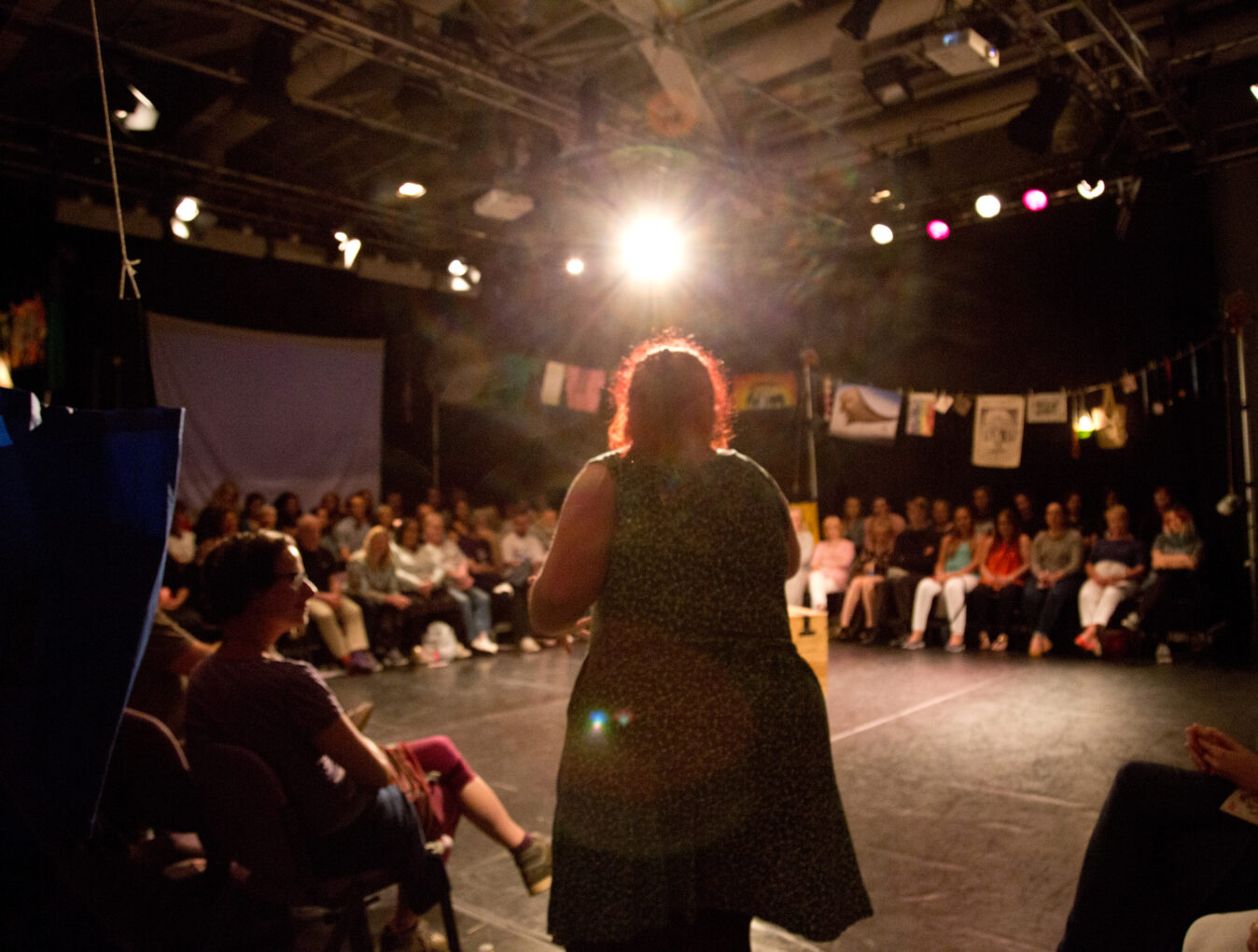


Rachel was contacted by publication Ziggy’s Wish to contribute to a discussion around our duty of care as artists to audiences. If you would like to read the full Ziggy’s Wish article please click here. You can read Rachel’s response below.
The power to bring people together, regardless of race, religion, gender, background or profession. Art tells us stories, provokes our emotions, asks important questions and broadens our horizons. It is little wonder, then, that storytelling has continued to thrive and stay relevant throughout history, helping humans to connect and to communicate. Working in narrative engagement, we are naturally keen on the power of art and great storytelling. However, that keenness is born of evidence, not bias. Great stories birth great passion, but not necessarily a knowledge of their capacity to help people. Venues that stage the arts are not just spaces, they are guardians over this knowledge and wells for this evidence.
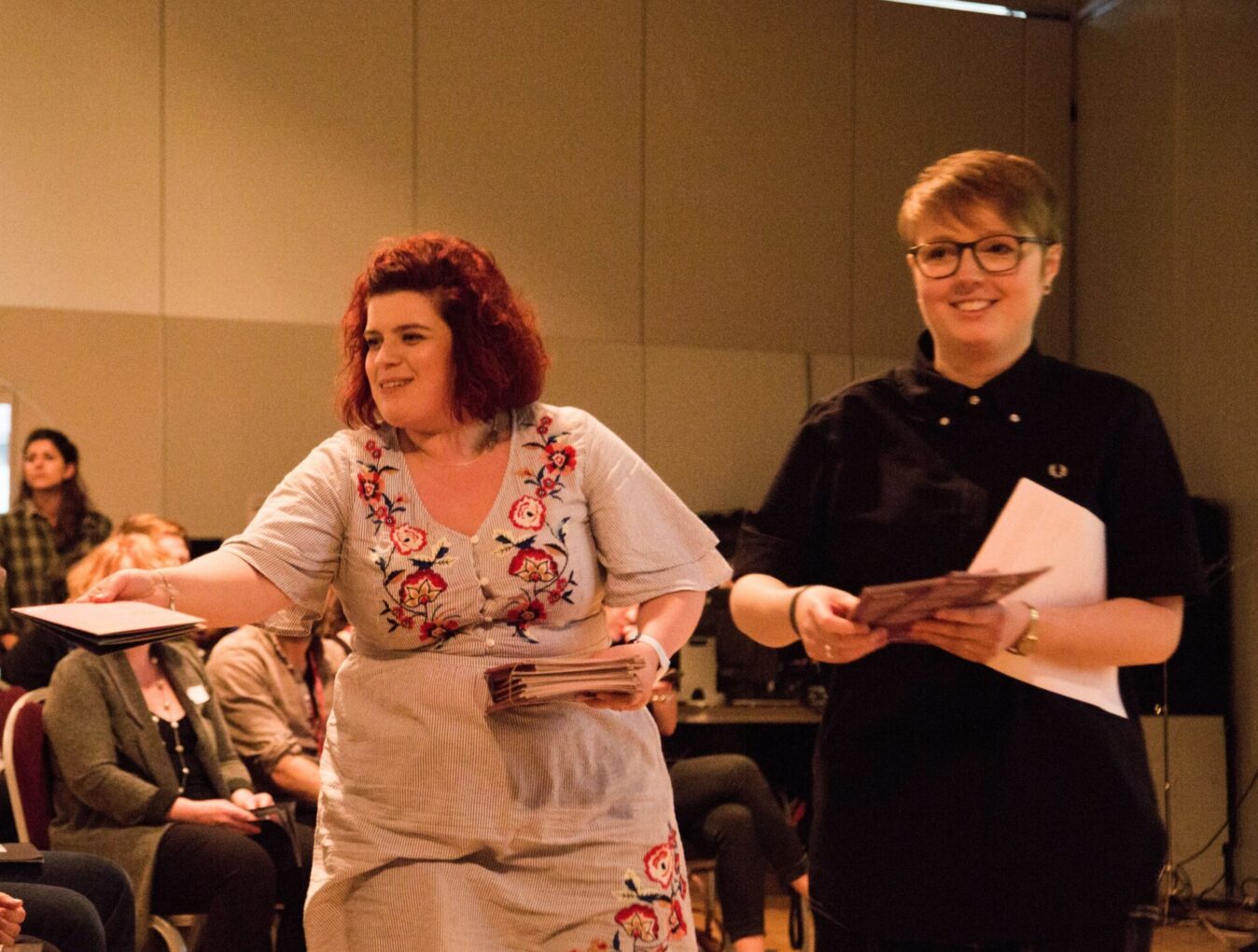

Opening us up, as they do, to perspectives that need considering and subjects that warrant exploring, the arts are a powerful communication tool for those who may otherwise struggle to engage. For the increasing number of people who identify as vulnerable or socially excluded, the arts and the venues that host them provide a crucially important gateway for conversation.
What happens, then, when this gateway acts not as gateway but as a barrier? And whose responsibility is it to overcome that barrier?
There are many circumstances that can make a person vulnerable, and affect their experience of the arts and arts venues, or their likeliness to partake of them. Social inequality, economic deprivation, mental health difficulty, personal trauma relating to the subject matter – all have been cited as reasons that a person might not feel comfortable entering an arts venue and experiencing the work on offer. Issues such as feeling out of place, intimidated, or exposed scratch the surface of something very complex and deep-rooted: a feeling of inadequacy, of isolation, and a fear of rejection in a space that instead should feel inclusive.
So if art is for everyone and we have venues to provide it, yet not everyone feels they can access it, therein lies a fundamental concern. We posed this question to: Derek Stewart, the Associate Director for Involvement and Engagement at the National Institute for Health Research; Rachel Moorhouse, Creative Producer of Art With Heart Theatre Company; Delia Muir, Welcome Trust Engagement Fellow at the University of Leeds; and Matthew Green, Associate Professor of Modern English Literature at the University of Nottingham to gather their perspectives.
Rachel: As artists I believe there are a number of responsibilities which lie firmly in our court to ensure a safe and supportive environment for the creative team, audiences, participants and organisations presenting our work. We must always ask if/why we are the right people to be making the work. Do our voices come from a place of authenticity and authority, through personal or shared experience? Do we feel confident that we can respond to difficult questions or conversations that the work may provoke? Do we have something useful to offer audiences and add to the conversation? If the answer to any of these questions is no, yet we feel compelled to make this work, we must consider how we can achieve authenticity.
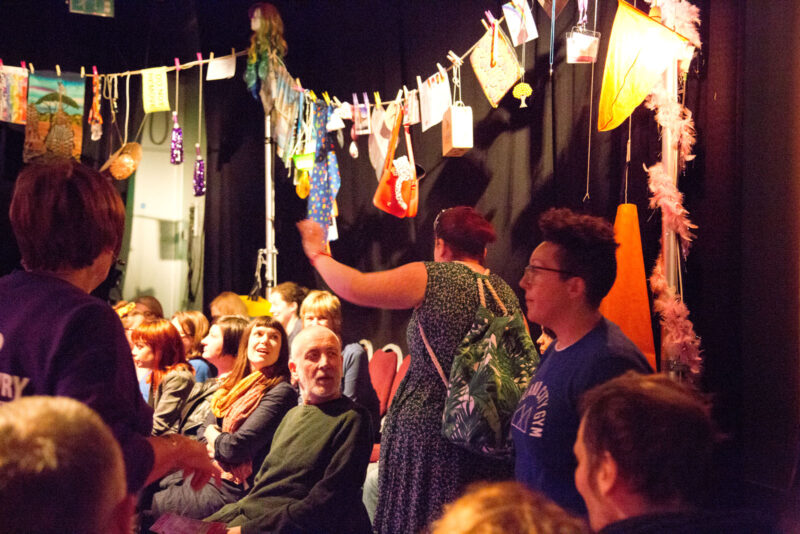
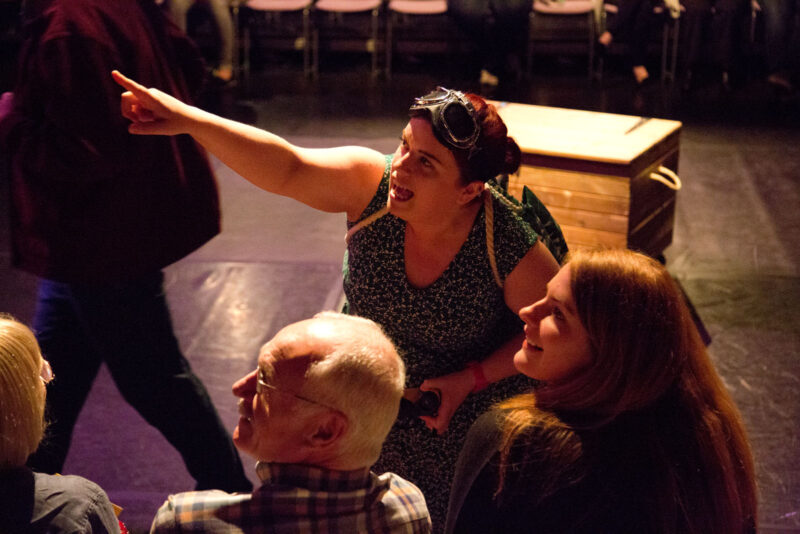
Research the subject, until your eyes are tired and your head is full. Be aware of confirmation bias, ensure your sources are varied, challenge your own preconceptions. Speak to real people, talk with individuals and communities at the heart of the subject, make sure their voices are part of the process and present in your work. It is important you consider the facts and the lived experiences of others. Speak with organisations and individuals with knowledge and experience, those who are proficient in dealing with the complexities of the subject. Ask their advice, and be honest about your shortcomings. Point your audiences to these organisations in promotional material, so that they can seek support if required.
Audience development is an integral part of what we at Art With Heart do. It’s so important to prepare audiences, particularly vulnerable groups and individuals, ahead of watching sensitive material. Working closely with the education sector, we are fully aware of the fight to get students off timetable to come to the theatre, therefore we always provide young people with a post-performance workshop. This workshop is given as much thought and focus as the work itself, as this may be the only opportunity your audience has for discussion in a safe and inclusive environment.
For general-public audiences, we provide a post-performance Q & A as standard, which is always chaired by the company or someone with thorough knowledge of the work and themes.
As artists it is important that you take ownership of your work and communication with audiences. Like artists, venues are often under-resourced, with small teams responsible for promoting multiple shows; they need to be well informed about your work. Give them as much information as possible well in advance, and prepare them for any potential conflict that may arise amongst audiences. Venue staff may be inexperienced when approaching certain themes or communities; your work is an opportunity to open doors and broker relationships, but they will need your support.
Seek out local organisations that may be able to offer support. Audience reaction can never be predicted, and venues should avoid making assumptions about how individuals or communities will respond. They can, however, prepare through consultation with individuals, services and organisations embedded within relevant communities.
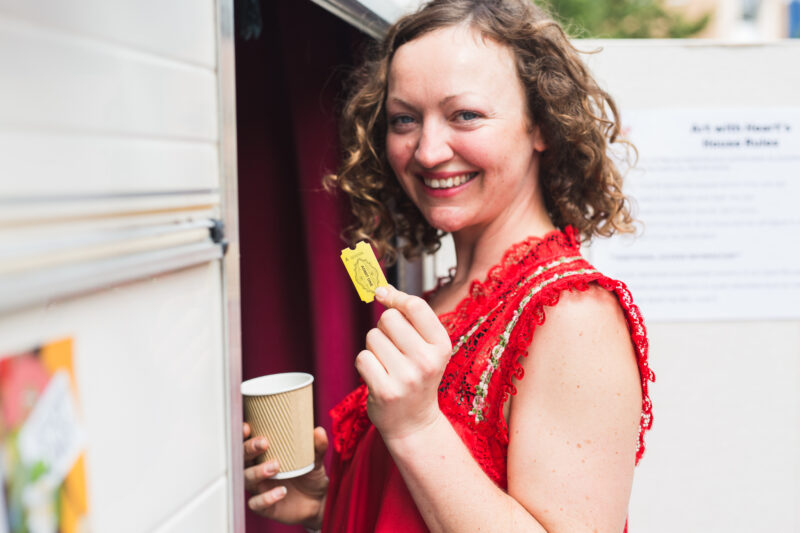
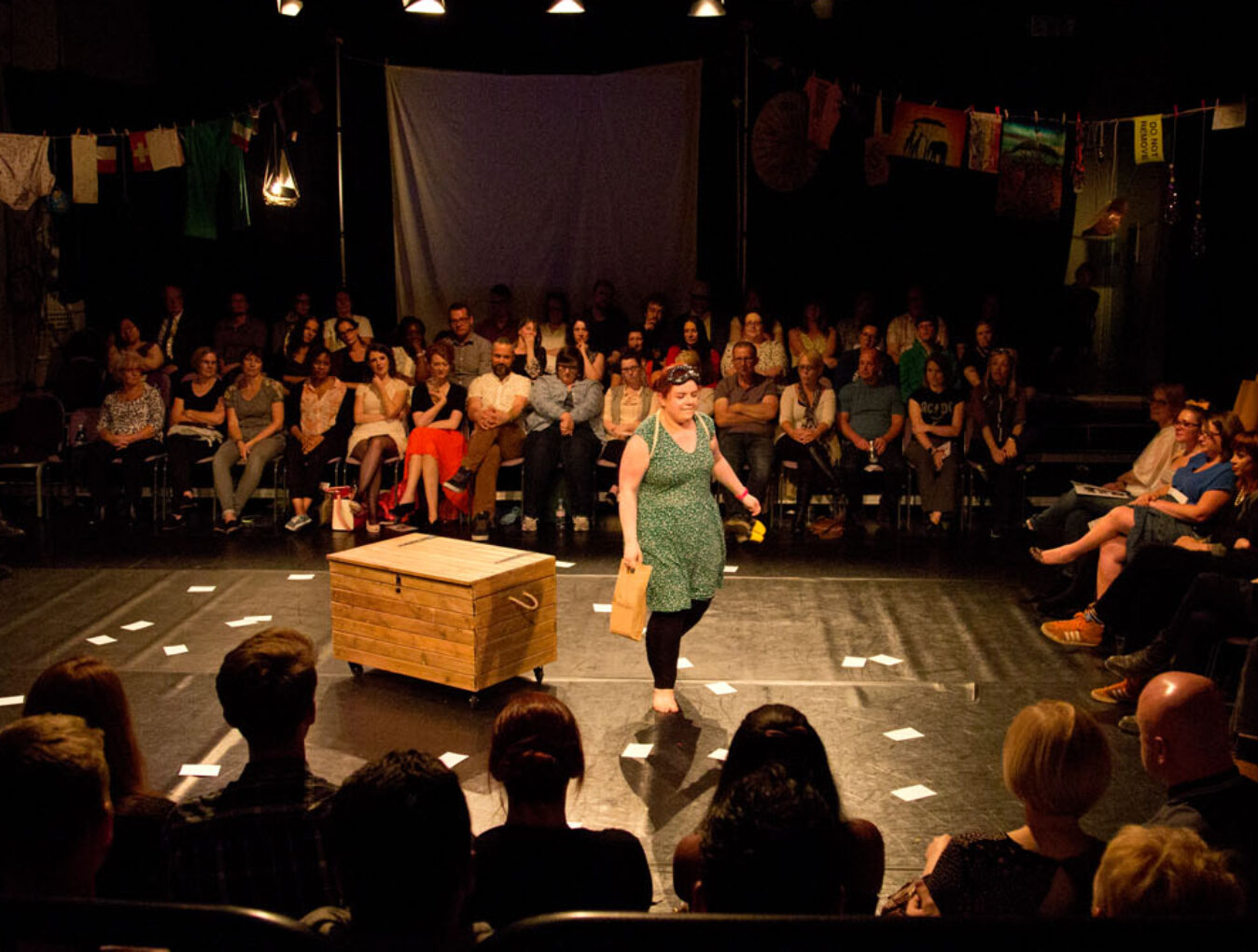
They must invest in this, and not expect consultation and advocacy for free. They must pay people, or offer something of value for their time and knowledge. Venues must also prepare their staff by ensuring they are well-versed in the organisation’s decision to programme controversial or sensitive work, and where to guide vulnerable audience members.
It would be wonderful to see venues investing in pastoral support for audiences as standard, in the same vein as accessible performances. It is important that the arts are accessible to all, particularly society’s most vulnerable.
Venues must invest financially for this to happen; whether that be taking a hit on space hire, leaving a room unused for the evening to provide a dedicated safe quiet space for audience members to access should they need it, or keeping a technician on for a little longer so that audiences can stay in the space until the rush has gone.
They must also invest in the right people to front work. If they programme a post-show performance for example, pay the right people to be there. Whether hosts or panel members, ask leaders in the field to share their voice, and pay them to do so.
Charities/public-sector organisations may be able to offer support, however if they aren’t being paid, and are called away, audiences may be left with someone who is completely ill-equipped to handle challenging and complex debate. It is unfair to the host and audiences, and it undermines the integrity of the work and conversation.
I believe audiences also hold a level of personal responsibility when exposing themselves to challenging subjects. If they know that a piece may be particularly difficult to watch, they should seek out trigger warnings, and take someone they trust with them for support.
